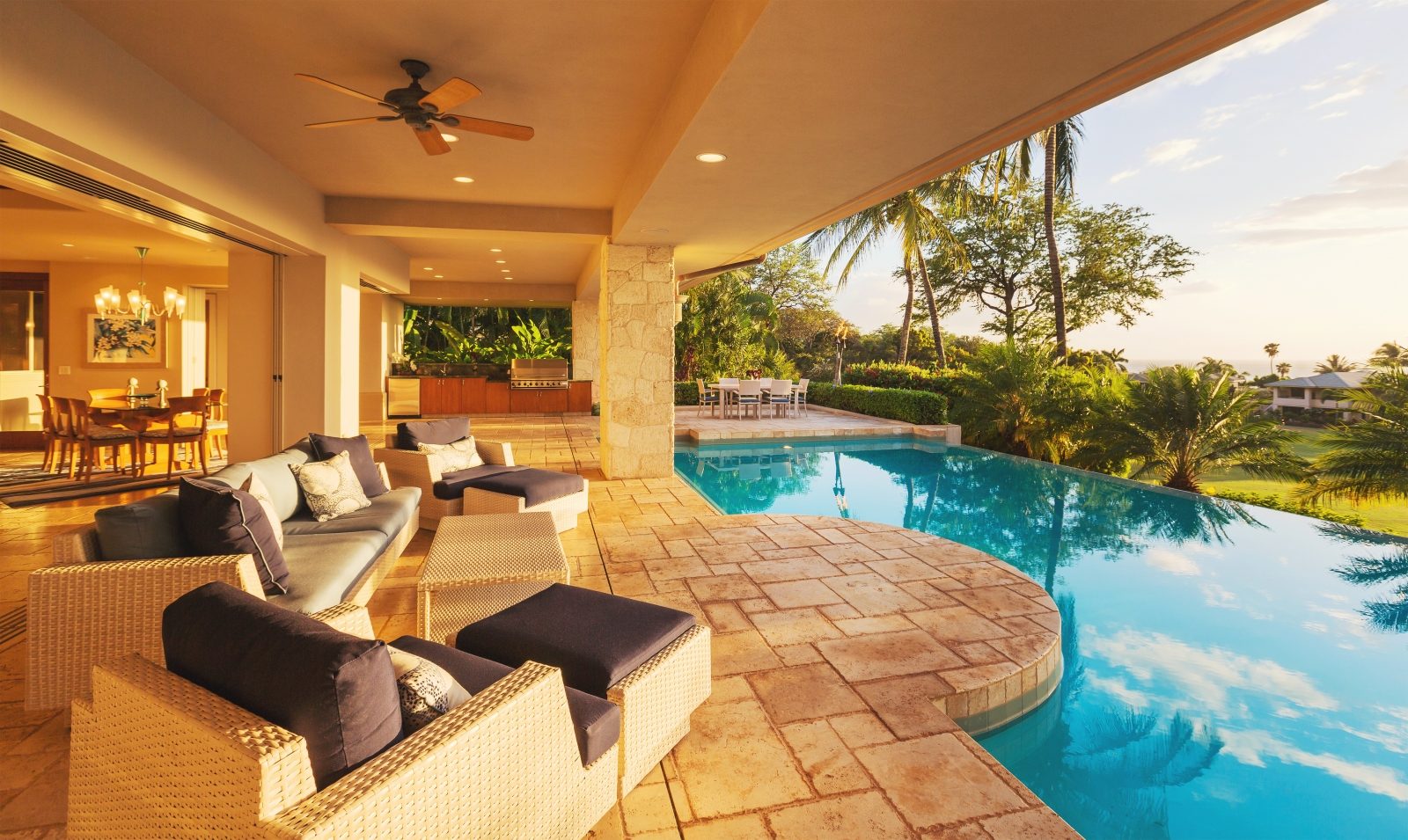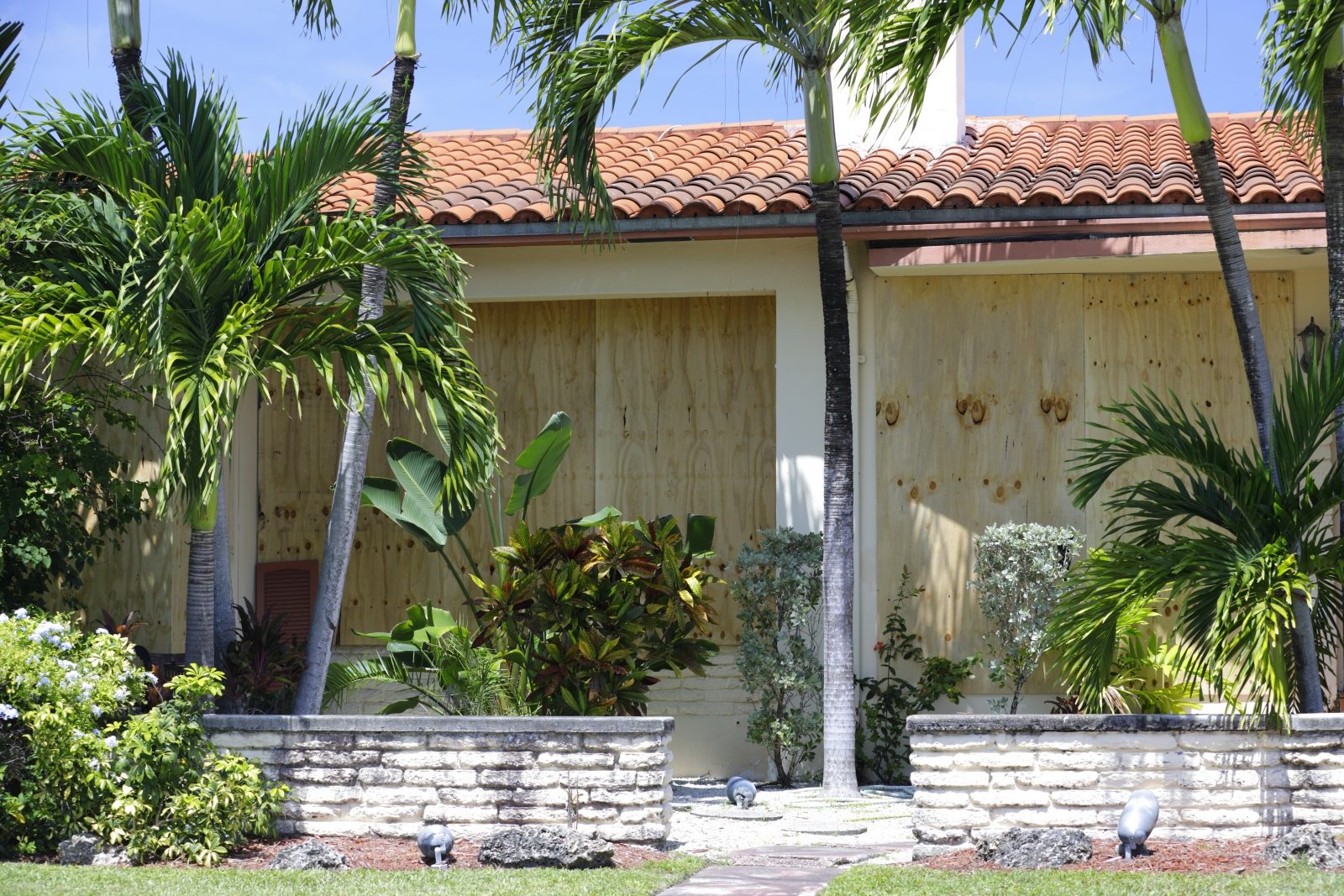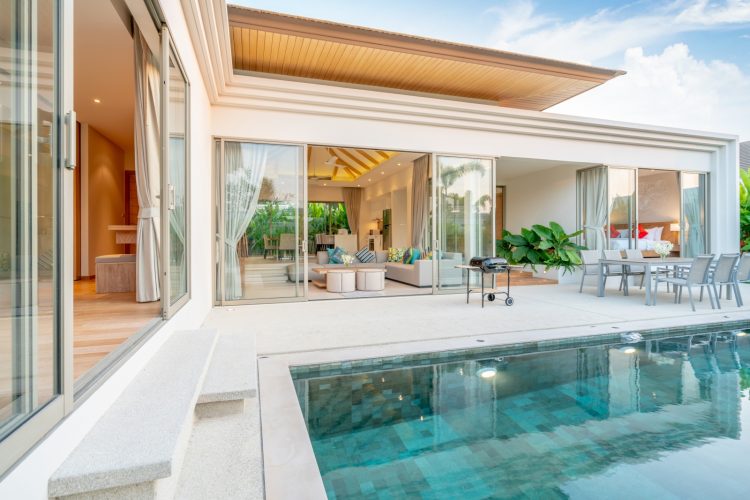As we are in the third month of hurricane season, making sure all preparations for potential storms that may cause damage to property is paramount
In many cases, rental villa owners choose to close their properties throughout the peak hurricane months of September and October. By doing this, it eliminates the risk of possible harm to any renters that may be staying in a rental villa throughout a storm.
In advance of a possible hurricane, it is advisable to carry out as many precautionary tasks as possible. Smiths Gore has compiled this list of actions that should be implemented as soon as possible to reduce the risk of loss or damage from a severe storm.
Firstly, it is vital to have the right insurance in place well in advance of the arrival of hurricane season. Whatever precautions can be taken to prevent damage, there are also times when the destruction of property is unavoidable or preventable. Comprehensive insurance, including loss of business coverage, is advisable whenever your property is part of a rental program. It is always worth having a conversation with your insurance company to ensure that your coverage is adequate to cover the potential loss of a property. Many properties proved to be under-insured following the devastation caused by Hurricane Irma in 2017. There can be grave financial implications due to a lack of or insufficient property insurance.
The most crucial factor to be considered when renting your property is the safety of your guests. If it is highly likely that a severe storm will affect your location, your guests should be warned and given the option to leave the Territory before the storm’s arrival. This decision may well have to be made several days in advance of the Hurricane arriving in your area, especially as both air and seaports will likely close before severe weather comes. Once your guests have vacated your property, you must take all necessary precautions to protect the Villa.

Hurricane shutters need to installed to protect your windows and doors. There are several different types of hurricane shutters on the market. The easiest and quickest to install are the permanently installed roll away shutters that can be activated by hand or electronically very quickly. A cheaper alternative may be custom made plywood sheets that you have fabricated in advance and that bolt to the walls. Whatever means you have for shuttering the villa, they should be installed quickly, to protect the most vulnerable parts of your house, namely anything with glass in it. It is advisable not to make the house airtight. At least one window or opening on a sheltered side of the villa should be left open so that there isn’t a pressure build-up inside the house. During a hurricane, the barometric pressure outside will drop considerably, and if the air pressure inside the villa cannot adjust then damage can be caused.
After you have installed the shutters, you should remove all loose objects that could become airborne during a storm from the outside of your villa. Everything from potted plants and gas grills to children’s toys or pool furniture should be stored inside where possible.
If you have a backup generator on your property, it would be prudent to check the oil and fuel and ensure that it is fully operational. It is quite possible that the main electricity sources will be cut temporarily during and following a severe storm. A functional backup generator could be invaluable to you in allowing you to keep your refrigerator running and provide lighting and water if the system fails. It may also be necessary to provide power to any swimming pool pumps or filters until the mains electricity returns.
A realistic assessment of the outside grounds, plants and in particular the trees in the gardens outside the house is necessary. In the event of high winds and possible lightning strikes, any overhanging branches may cause severe damage to roofs or windows, and you should consider removing them in advance.

If the dwelling is unoccupied during the storm, it would be prudent to switch off all electrical appliances and unplug them where possible, including water heaters and computers. The swimming pools pumps should be isolated for the duration of the storm to prevent the clogging of filters from vegetation and debris. Equally, propane gas tanks should be switched off, and if the containers themselves are vulnerable, they should be placed somewhere safe or at the very least secured to something substantial.
Finally, if there is a risk of flooding inside the villa, then any valuable or irreplaceable objects should be moved to a higher floor or at least raised off the ground floor where they might get wet.
The rule of thumb is that prevention in all its forms is much better than a cure. Here’s hoping for a calm hurricane season.
[ts_fab]
